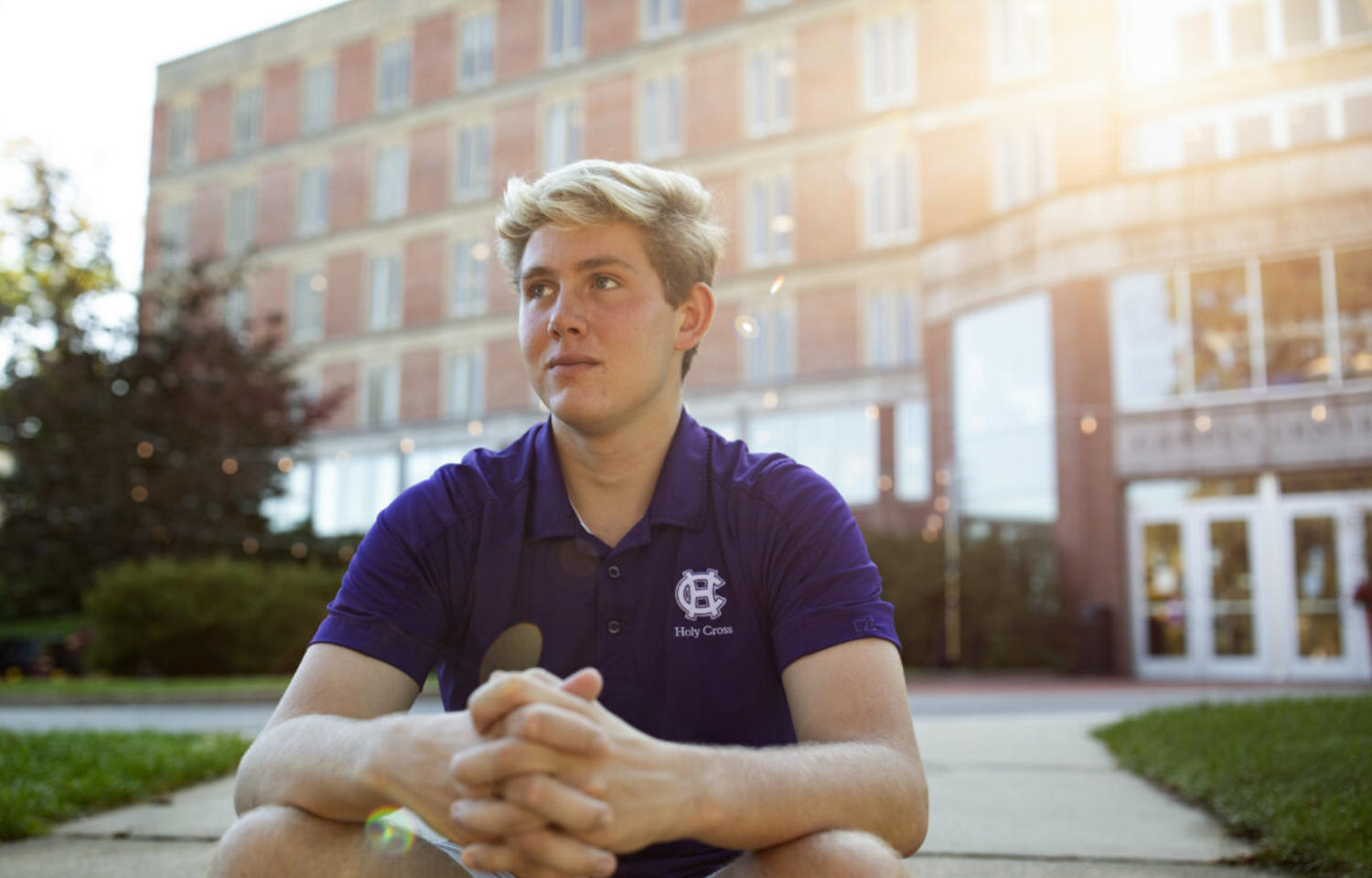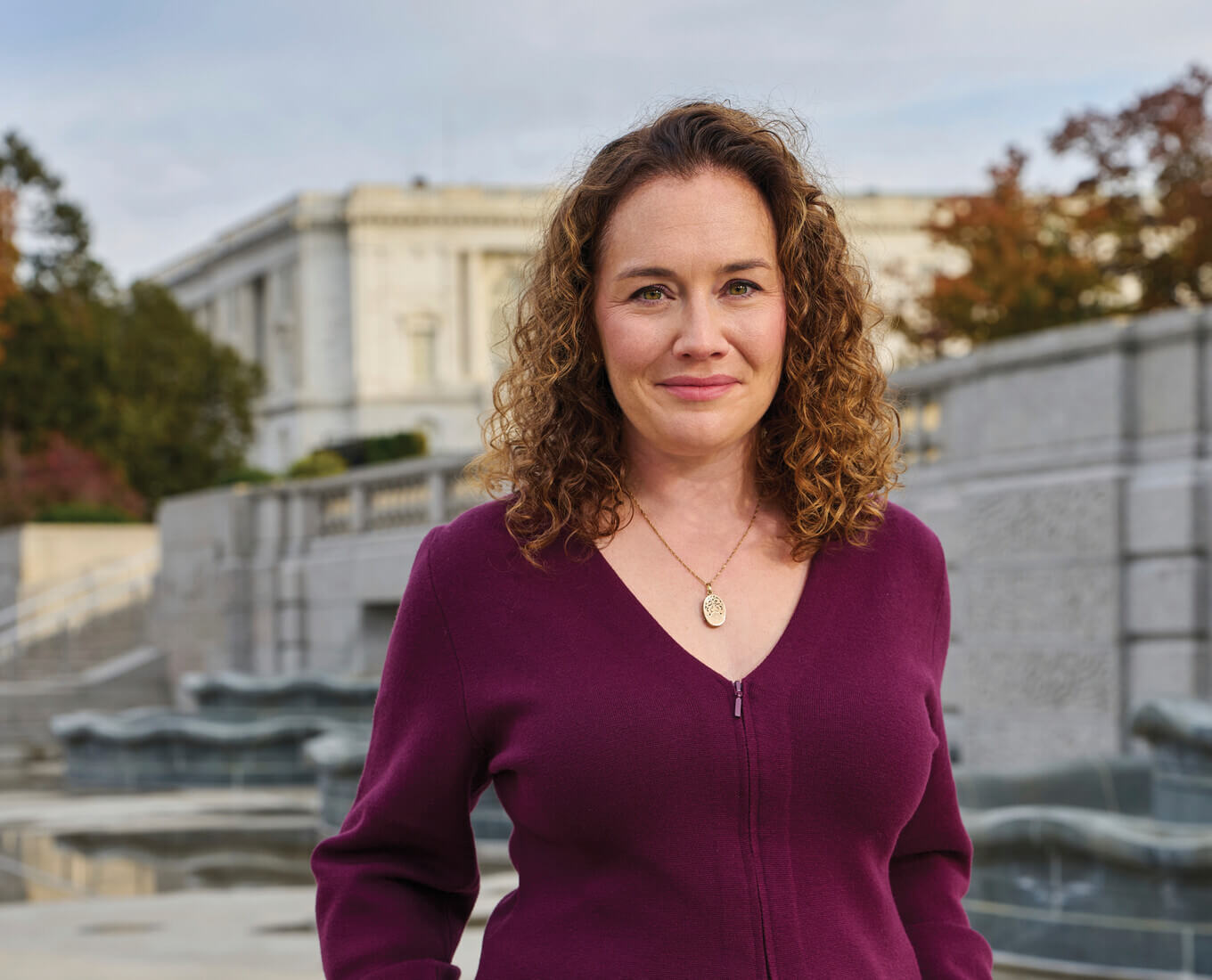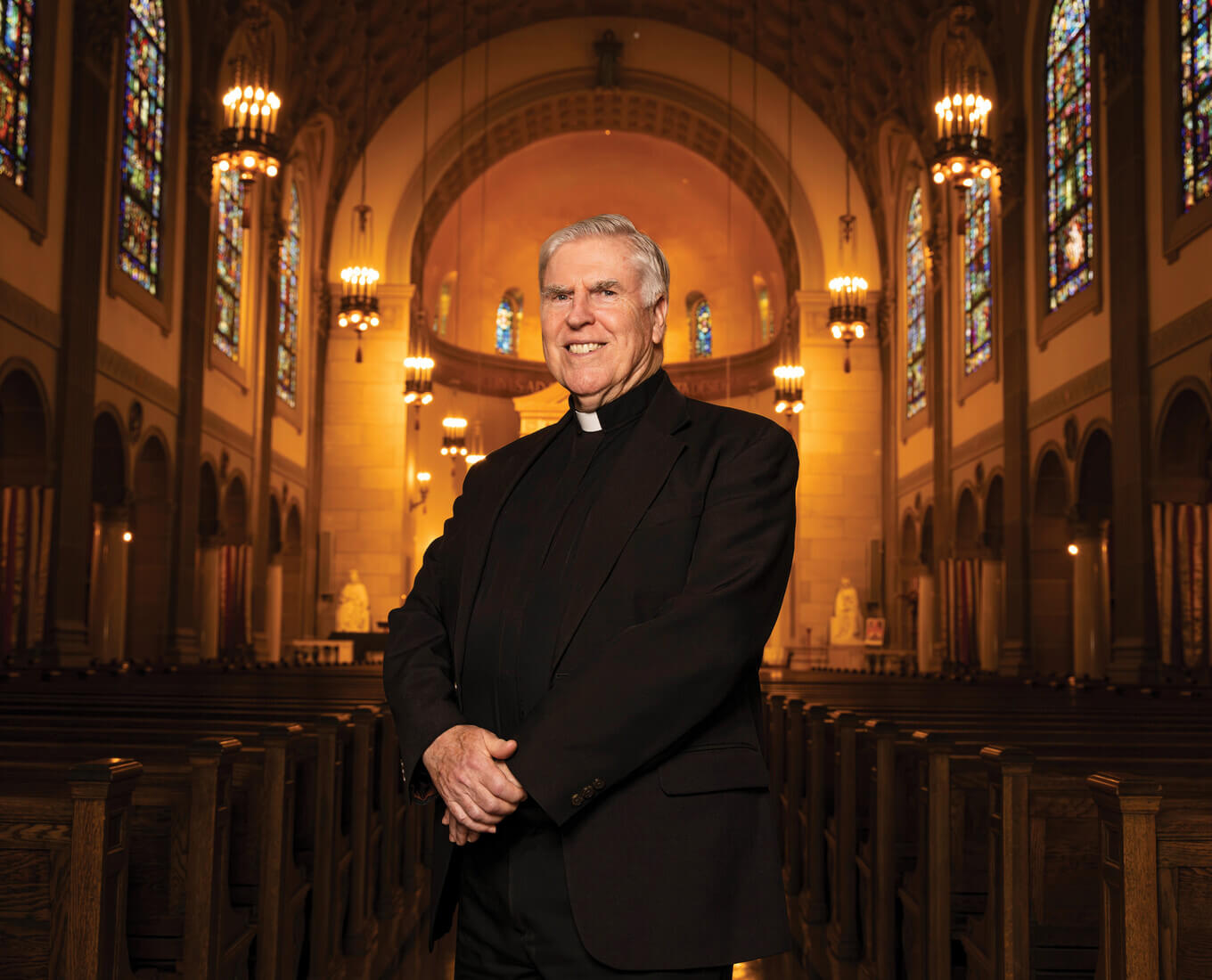“We need to normalize conversations around mental health and normalize access to resources, making them easier for people to find,” said Michele Murray, senior vice president for student development and mission.
For more than a decade, Holy Cross has followed national trends and seen an increase for mental health services continue to rise. The reason, in part, is the cumulative stress students of this age have encountered since birth: school shootings, racial unrest and injustice, a global pandemic and the proliferation of social media, according to experts. They are also children of parents who lived through the Sept. 11, 2001 terrorist attacks, which fundamentally altered many, Murray noted.
In response, Holy Cross’ Counseling and Psychological Services (CAPS) staff has increased, health center best practices have been updated, student organizations expanded and student wellbeing emphasized. Various outreach efforts and traditions also continue, including Fresh Check Day, a program of the Jordan Porco Foundation, that involves multiple campus departments and groups focused on mental health and student safety.
Expanding Suicide Education
It still isn’t enough, though, according to Paul Galvinhill, CAPS director, and Murray. The College needed to think about different approaches and include more people.
In 2021, Holy Cross partnered with JED to evaluate resources and policies and to augment the services already provided. “JED offers a terrific way of thinking about mental health and suicide prevention from an ecological standpoint and not just at the point of crisis,” Murray said.
Most colleges have counseling centers that offer support, but don’t offer a campuswide model. JED assists in creating a more public health-like model by partnering with the institution to review policies, inventory the physical infrastructure, paying close attention to areas that could be used in a suicide attempt, and creating and sustaining a 24/7 coverage program, if needed.
In entering a four-year partnership with JED, Holy Cross developed a task force that inventoried programs and infrastructure, and managed a survey sent to all students. Now in year two, the College is implementing recommendations, which includes the development of new programs and greater promotion of support services already in place.
"The focus is to make the campus as safe as possible, raise awareness of mental health and prevent suicide," Galvinhill said.
In mid-September, faculty and staff were encouraged to participate in a new suicide awareness and prevention training called QPR (Question, Persuade, Refer). Learning how to identify, approach and talk to someone who might be in crisis or who might be considering suicide can be challenging, Galvinhill said.
Combating the Stigma
"There is still a concern that some have, a stigma they believe, that if you talk to someone about suicide you could cause it, which we know isn’t true. In most cases, people feel validated, heard when you talk with them," he said. "I think it takes quite a bit of strength to be vulnerable as opposed to hiding it and keeping it inside. I’m more worried about the student who is doing that than the students who are openly talking about it."
"The more people we have attuned and who feel like it is their place to intrude and ask some good questions, communicate that each person has value and then walk with them to an appointment or refer them to someone who can help the better we are as a community," Murray said. "And as a Jesuit, Catholic institution, where we prioritize and value the whole person; this is just basic practice."
Meiser said it is crucial that students are involved in these conversations and possibly lead the way — and not just those who are the high-performers or those already identified as needed or seeking help. It’s the group in the middle, the ones who purposely or accidentally fly under the radar, he said.
"It’s usually students who know about these things before they happen. We need to make sure there is an outlet, a trusted outlet, for them to share what they know. You need to create a community of trust so that they can come to you, that they’ll be taken seriously and that they won’t be punished," Meiser said.


